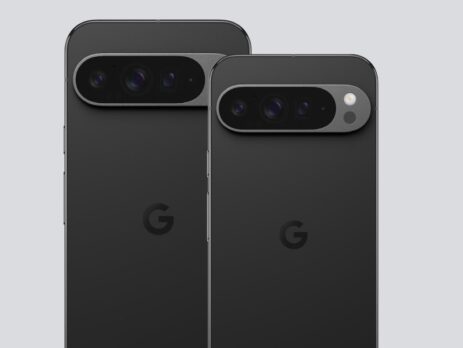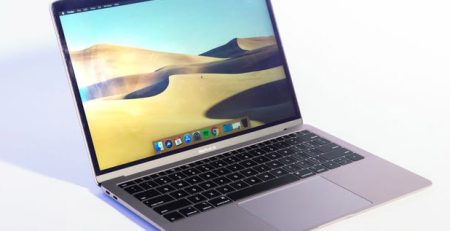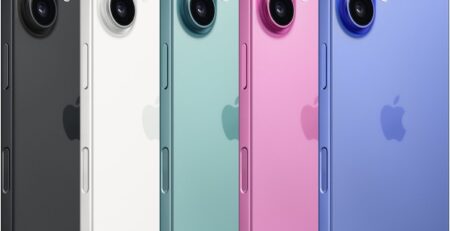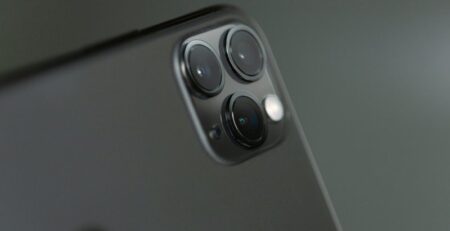Should I Get a Google Pixel? Pros, Cons, and Considerations
Making the right choice in the modern smartphone market can be extremely difficult. A lot of models and brands offer tons of features, which makes the search of the right device for you exhausting. Among the leading candidates is the Google Pixel, which touts pure Android, high-quality cameras and integration with Google’s ecosystem. But the question is still: Should you get a Google Pixel?
This guide can assist you to answer this question. We will go over the story of the Google Pixel, its main features, cons and pros, and compare it along with other leading smartphones. By examining who would benefit most out of the Pixel and who might prefer other options, we hope to help you make the right smartphone choice.
Understanding the Google Pixel
Brief History
In 2016 Google introduced the Google Pixel series, their first premium smartphone. Before the Pixel, Google partnered with companies like LG and HTC to create the Nexus line that reflected the true Android experience without manufacturer tweaks. With the Pixel, Google fully controlled hardware and software development, combining its services and improving the user experience.
Years down the road, the Pixel lineup grew to add in the Pixel 2-9, and also the more affordable “a” series. Each iteration offered improvements in design, performance, and new features. From camera technology to improved artificial intelligence, Pixel series have always tried to showcase the best of Android.
Google’s Vision
Google’s vision for the Pixel series is to create a seamless fusion of hardware and software. By controlling both aspects, Google aims to deliver a smartphone that not only meets but anticipates user needs. The Pixel is designed to be the ultimate vessel for Google’s services, offering deep integration with tools like Google Assistant, Google Photos, and real-time translation features. This holistic approach allows for continuous improvement and the introduction of cutting-edge innovations directly to users, making technology more helpful and accessible.
Key Features of the Google Pixel
Pure Android Experience
One of the best parts about the Google Pixel is it is all Android. Unlike other manufacturers that add custom skins or bloatware, the Pixel delivers Android pure and simple. Users appreciate a simple, intuitive interface. Absence of unnecessary software also ensures a smooth running of the device over time.
In addition, Pixel users get software updates from Google directly to their devices. This priority access means better security, access to new features and improved device longevity. This pure experience is often a selling point for Android fans.
Exceptional Camera Quality
The Google Pixel series has a reputation for being very good camera performers, often beating rivals with higher megapixel counts or multiple lens setups.

Google’s expertise in computational photography is important here. The Pixel’s camera improves images for clarity, color and detail with artificial intelligence and advanced algorithms.
Features such as Night Sight allow users to take photos in low light with no flash and Astrophotography mode lets them take photos of the night sky. It achieves high quality in all shooting situations and is popular with photography enthusiasts as well as casual users who want good photos with no manual adjustment.
Google Assistant Integration
Deep integration with Google Assistant makes the smartphone a tool for executing tasks, accessing information and controlling smart home devices with voice commands. Features like Call Screening use Google Assistant to prevent spam calls by showing real-time transcriptions and allow users to block or report unwanted callers.
The Pixel also comes with exclusive features like Hold for Me, where Google Assistant waits on Hold during calls and alerts the user when someone calls back. This level of integration provides greater convenience and productivity in daily interactions.

Regular Software and Security Updates
Security and software updates are critical components of a smartphone experience, and Google does well with the Pixel series. Users get monthly security patches that defend against new threats while keeping personal data safe. Google promises several years of software support for Pixel devices so users can keep using Android features without having to frequently update their hardware.
This commitment to continuous support prolongs the device’s life and peace of mind for users looking for security and the latest software. It gives you an advantage over some competitors that may provide less consistent update schedules.
Innovative Features
The Pixel phones have some unique features that help with usability.
Now Playing recognizes music in the background and shows the song title and artist on the lock screen without user intervention or data sending to Google. The Recorder app transcribes audio in real time – great for students, professionals and anyone looking to record and review spoken content.
Live Caption provides captions for any media playing on the device for deaf or hard of hearing users. These innovative features showcase Google’s efforts to improve user experience with AI and machine learning.
Advantages of Choosing a Google Pixel
Seamless Google Ecosystem Integration
Choosing a Google Pixel means buying into a device that fits into the entire Google ecosystem. For owners of services like Gmail, Google Drive, Google Photos and Google Calendar the Pixel provides an enhanced and cohesive experience. Emails, documents, photos, and schedules all sync across devices.
Features like automatic photo backups to Google Photos and real-time collaboration in Google Docs become more intuitive. Pixel serves as a hub for all Google services, enhancing productivity and convenience, especially for those deeply embedded in the ecosystem.
High-Quality Display and Build
The Google Pixel series is known for their quality displays and sturdy build materials. The devices typically have OLED screens with rich colors and blacks, and good contrast ratios for visual enjoyment. High-resolution displays support HDR content for streaming videos or browsing photos.
On the build quality front, the Pixel phones often boast high quality materials like glass and aluminum. This quality attention extends to water and dust resistance.
AI and Machine Learning Capabilities
Google leverages its leadership in artificial intelligence and machine learning to enhance the Pixel’s functionality. These capabilities permeate various aspects of the device, from photography to daily usability. The computational photography of the camera relies on AI to improve image quality, enabling features such as HDR + which combines multiple exposures for balanced photos.


Google Assistant, powered by AI, learns to understand user queries and responds with personalized suggestions, while automating routine tasks. The phone also adapts to usage patterns, maximizing battery life by reducing power for frequently used apps.
Privacy and Security
Privacy and security are top concerns for many smartphone users and the Google Pixel addresses these concerns through both hardware and software solutions. The Titan M security chip is another hardware feature that protects sensitive data and maintains the integrity of the operating system.
This dedicated security module protects passwords, encryption keys and sensitive transactions to prevent malicious actors from compromising the device. On the software front, the Pixel gets daily security updates directly from Google that address the latest vulnerabilities and threats. Google also offers apps that automatically scan for malware and control app permissions.
Potential Drawbacks
Hardware Limitations
While the Google Pixel series boasts numerous advantages, it’s not without its hardware limitations. One common concern is battery life. Some Pixel models have smaller battery capacities compared to rivals, resulting in shorter usage times, especially for power users who engage in gaming, streaming, or multitasking throughout the day.
The lack of expandable storage is another limitation. Pixel devices usually lack a microSD card slot, leaving users tied to the internal storage space offered by the product they buy. For those who store huge amounts of data this restriction can be a bottleneck and lead to the use of cloud storage.
Pricing Considerations
Another thing that might pause potential buyers is the price point for the Google Pixel series. As a flagship unit, the Pixel frequently sports a high price when compared with competitors like the iPhone or Samsung Galaxy S series.
This could be a deterrent for budget-conscious consumers or even those searching for the best deal. Even though Google has introduced more affordable options such as the Pixel “a” series, these models typically sacrifice some processing power, build materials, or feature sets.
Limited Customization
The Google Pixel’s commitment to a pure Android experience means fewer hardware customization options compared to other Android devices. Manufacturers like Samsung or OnePlus often include custom skins and additional software features that allow users to tailor their devices more extensively.


In terms of hardware, the Pixel line typically offers fewer choices regarding device sizes, colors, and configurations. This lack of variety can make the device less appealing to those who prioritize personalization and hardware flexibility.
Availability Issues
Geographical availability is another potential drawback. Unlike a number of its competitors the Pixel isn’t sold globally and might be unavailable in certain markets. This limited distribution may make it difficult for interested buyers in unsupported regions to purchase the device or obtain official customer support and warranty services.
Furthermore, carrier support might be limited depending on the country or region. Not all carriers offer the Pixel, and some may not support all of its features, such as 5G connectivity or advanced network services.
Comparing Google Pixel to Competitors
Versus Apple iPhone
The distinction between the Android and iOS ecosystems is vivid by comparing the Google Pixel to the Apple iPhone.The Pixel offers a customizable and flexible user interface, while the iPhone offers a consistent and streamlined experience. The Pixel works with Google services while the iPhone is integrated into Apple’s ecosystem.
When it comes to hardware, the iPhone is built for durability and optimized for performance, while the Pixel focuses on software with artificial intelligence capabilities. Security and privacy are two major points for each, though the emphasis is usually on Apple’s consumer privacy policy, which is cited as a significant advantage with its openness to encryption and data collection.
Versus Samsung Galaxy Series
When compared to the Samsung Galaxy series, the Pixel differs in hardware features and customization options. Samsung devices often offer higher RAM options, expandable storage, and features like reverse wireless charging.
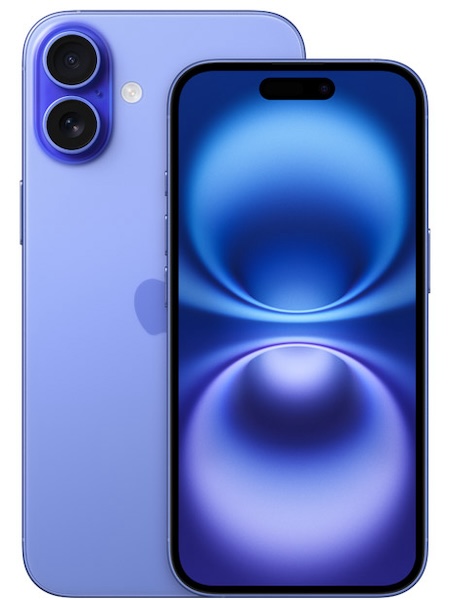
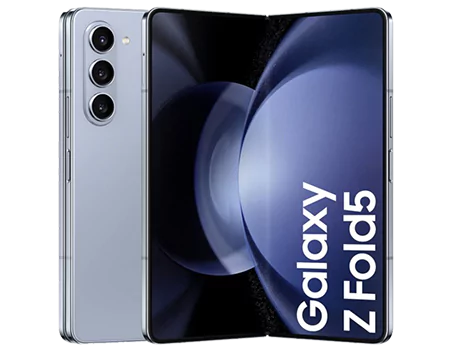
The Galaxy phones sport high-resolution AMOLED screens with good refresh rates for multimedia and gaming. Samsung’s One UI offers more customization but can come with pre-installed apps some users may find unnecessary. Pixel, with stock Android, offers a more streamlined experience and receives timely updates directly from Google.
Other Android Alternatives
Other Android manufacturers like OnePlus, Xiaomi, and Motorola offer alternatives with their unique advantages. OnePlus offers premium specs at a price that appeals to users who want performance at a bargain price tag.
Xiaomi offers a selection of smartphones at lower prices that may contain ads in system apps that interrupt the user experience. Motorola provides budget-friendly options with clean Android interfaces but may lack some of the premium features found in the Pixel.
The Pixel stands out for its software experience, timely updates, and camera performance achieved through AI rather than hardware alone.
Who Should Consider the Google Pixel
Android Enthusiasts
If you want pure Android with regular updates, the Google Pixel is the pick. The device sports a minimalist bloatware-free interface that enables fast performance and customization without constraints. Being at the forefront of Android developments is a significant advantage for enthusiasts.
Photography Lovers
For those into photography, the Pixel offers strong camera performance. Features such as Night Sight and Astrophotography let you take pictures in any lighting without professional equipment.
Tech-Savvy Users
Techies who want the latest AI features will like the Pixel. Innovations like Google Assistant integration and real-time transcription show how Google is pushing smartphone technology forward.
Privacy-Conscious Users
If privacy and security are important, the Pixel boasts hardware and software protections like the Titan M security chip and regular security updates.
Who Might Want to Look Elsewhere
Budget-Conscious Buyers
In case you want a smartphone for a fair price, the high end pricing on the Pixel might not work for your price range. Alternatives from other manufacturers may provide a better value for money without compromising on performance or features.
Feature-Seekers
Users needing specific hardware features like expandable storage, a headphone jack, or dual SIM capabilities might find the Pixel lacking in these areas. Other brands offer devices with these features to cater to varied user preferences.
Heavy Multimedia Users
If you require extensive storage and long battery life for heavy multimedia use or gaming, other devices with larger batteries and expandable storage options might be more suitable.
Embrace Innovation with the Google Pixel
Selecting the right smartphone means balancing the best features in the Google Pixel against your own personal taste and needs. The Pixel gives you pure Android, impressive camera, integration with Google’s ecosystem and security features. These qualities make it a good choice for users who value software speed, high quality photography and integration with Google services.
In case expandable storage and battery life are important to you, then potential drawbacks like limited battery life, not enough expandable storage, premium pricing and fewer hardware customization options might influence your decision. Consider how these aspects fit with your daily smartphone usage and what you value most in a device.
Take the Next Step with GadgetPickup
If the Google Pixel aligns with your needs, we invite you to make it your next smartphone. Its combination of innovative features and user-centric design can significantly enhance your mobile experience.

Visit GadgetPickup today to take advantage of our exclusive offers, sell your old smartphone effortlessly and earn cash for your new Pixel. Let us help you find the perfect device to match your lifestyle.
Frequently Asked Questions
Google typically provides seven years of Android version updates and security patches from the device’s release date. This ensures your device remains secure and up-to-date with the latest features.
Recent Pixel models have water and dust resistance ratings (e.g., IP68) but it is recommended not to intentionally splash water to avoid damage. Accidental splashes or brief immersions are tolerated.
The Pixel is generally unlocked and compatible with most major carriers, but it’s best to verify compatibility with your specific provider to ensure all features work correctly, especially advanced network services like 5G.
The Pixel maintains a reasonable resale value, but factors like device condition, market demand, and the release of newer models will influence its worth. Keeping the device in good condition and with original accessories can improve resale prospects.

